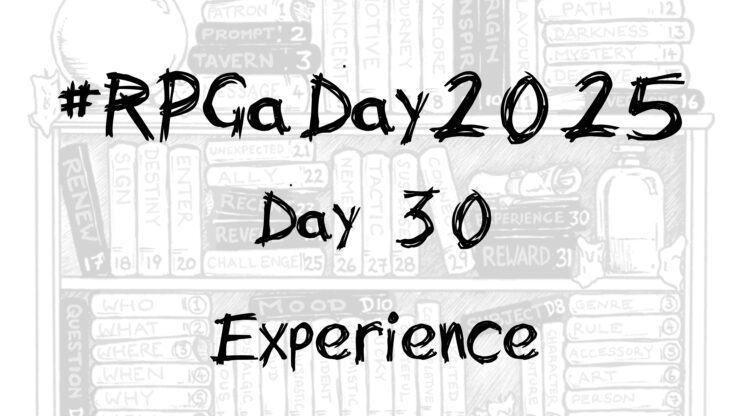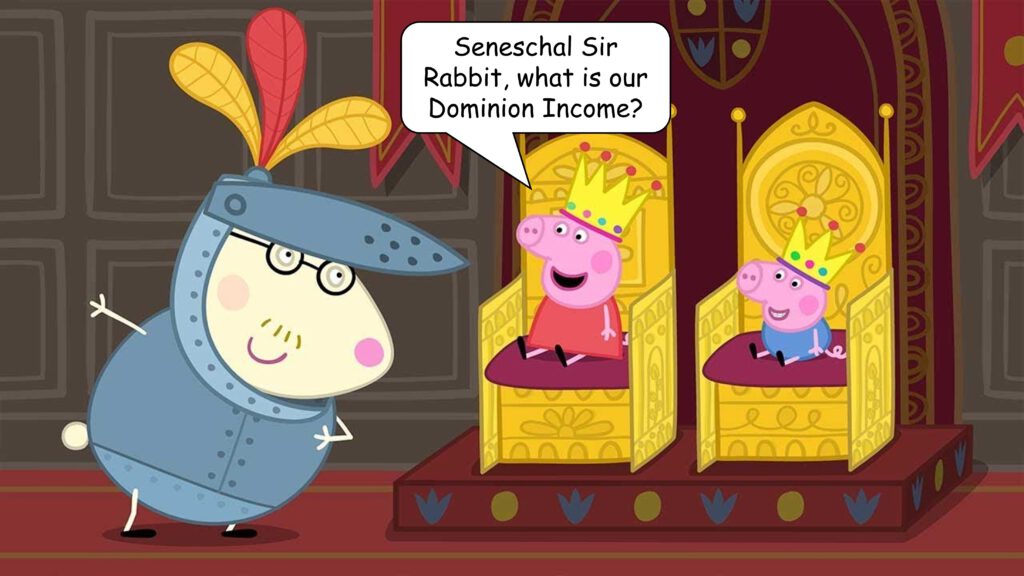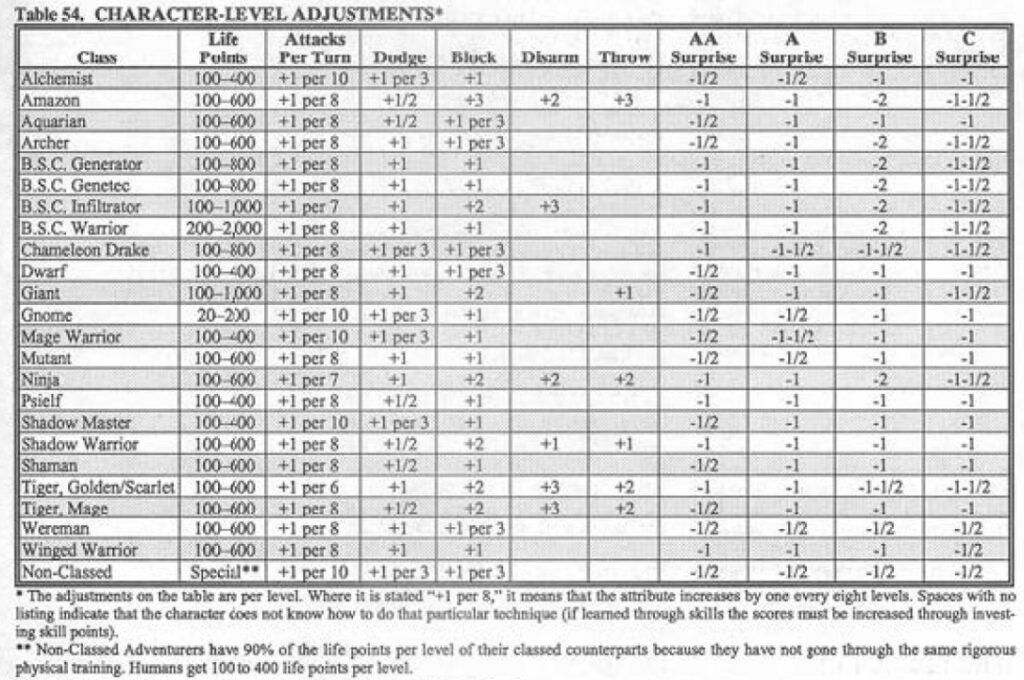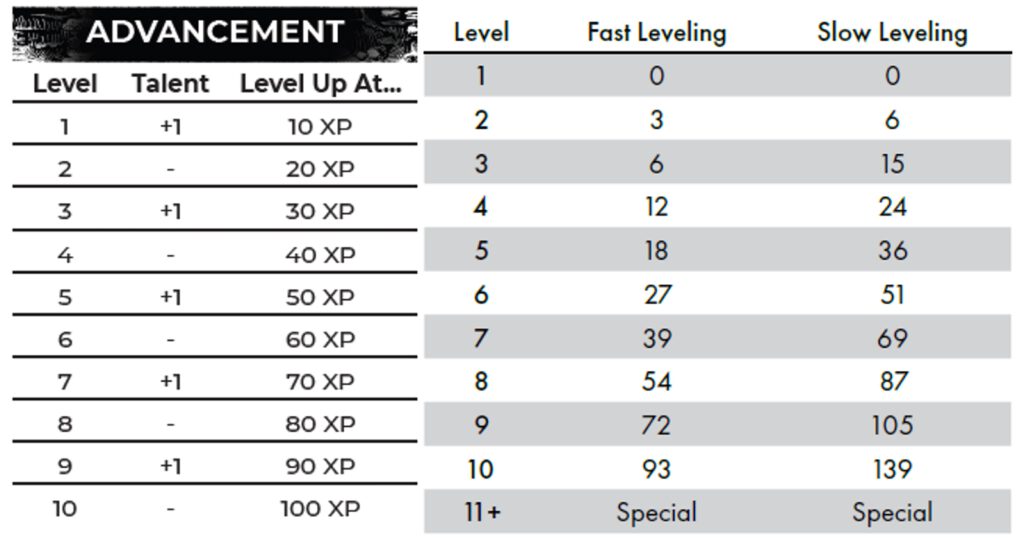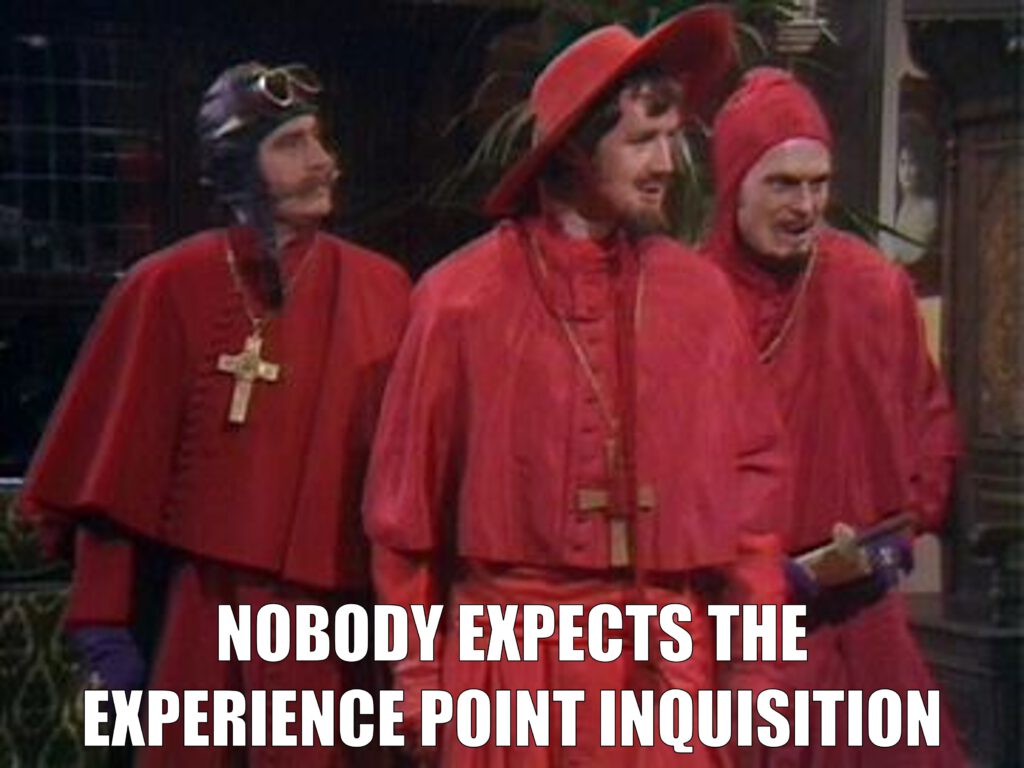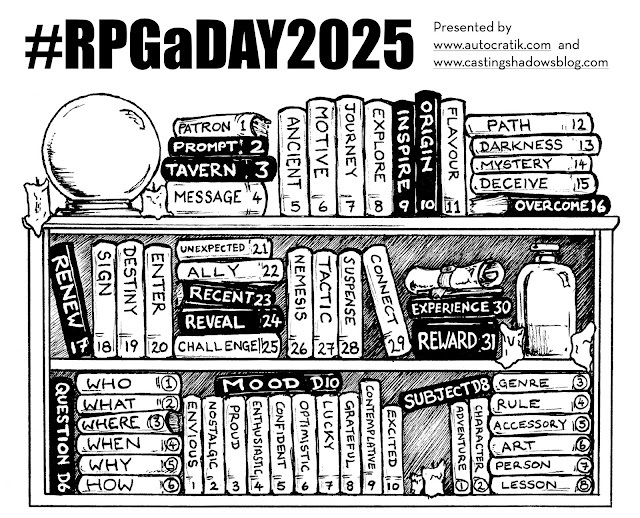Next to last post for RPG a Day 2025, and the prompt for today is Experience. So, allow me to discuss the experience mechanic in role-playing games, albeit somewhat incoherently, just some random thoughts, if you’ll indulge me.
The experience mechanic, so familiar in RPGs, is part of the game’s influence on society, adapted to electronic games, and a key component of the gamification of culture. After all, the badges and perks from your banking app are a little bit like leveling up in a game.
Even as a young gamer in the “olden days” of the late 1980s (as my son called them yesterday, clearly a Peppa Pig reference, see below), I wondered, “Why are these tables so complicated? Why are the numbers at high levels so massive? Can’t we use smaller numbers to make them more manageable?”
Peppa is name level and has built her stronghold, Rule Cyclopedia style.
Look at some of these tables. For example, the AD&D 1e Magic User Table goes up to 3,000,000 experience points!
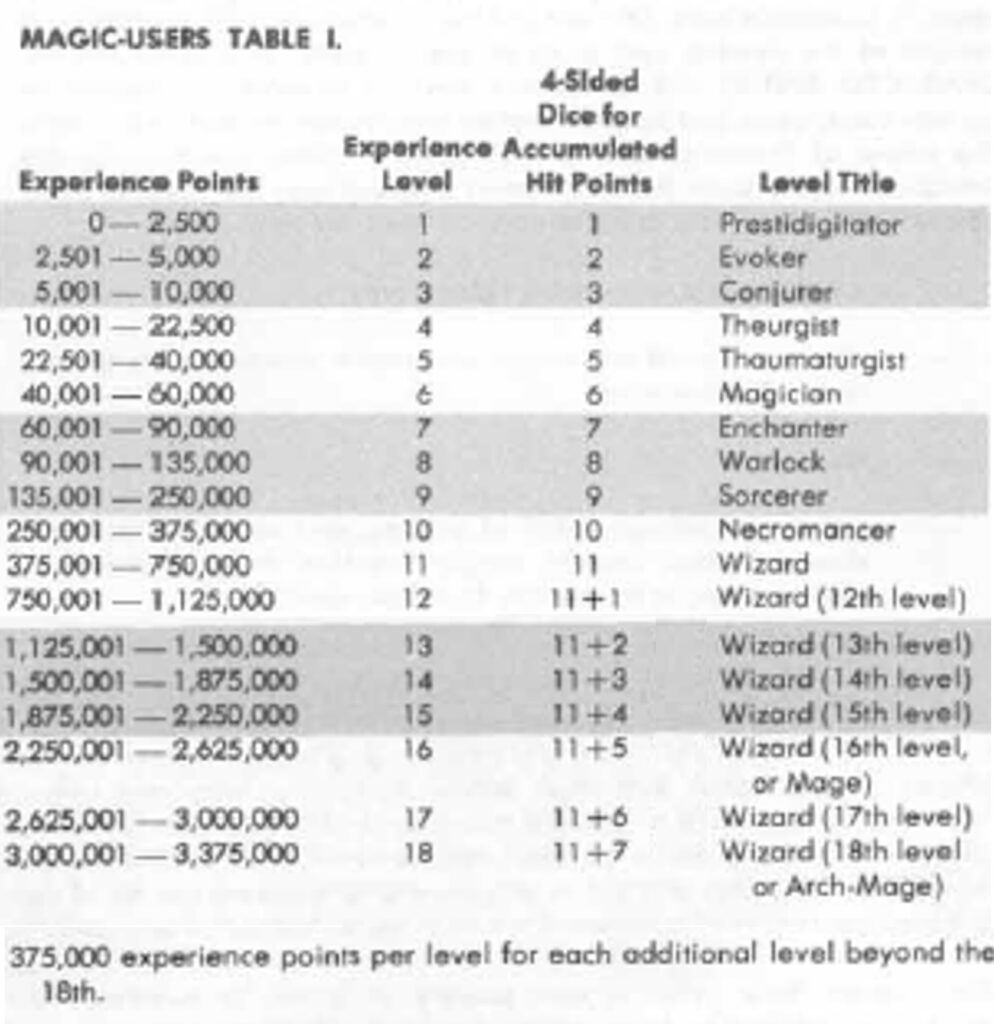
Or look at this table from The World of Synnibarr.
While different experience point totals for different classes were common for many years, I quickly became a fan of unified experience tables when D&D 3rd edition came out. Compare the D&D 3. Experience table to all the experience tables from Rifts!
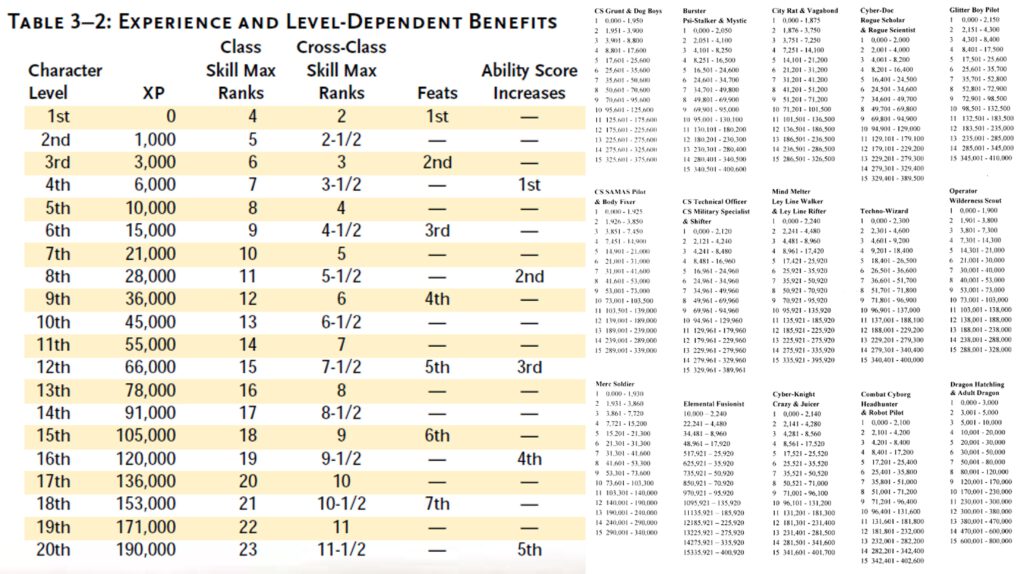
Despite being a fan of old-school games, I really dislike games that use different experience tables for each class. In my mind, Shadowdark and the Without Numbers games from Sine Nomine Publishing (Stars, Worlds, Cities, and Ashes Without Number) do this right. Look at the tables below. Manageable XP totals, Worlds Without Number even offers the opportunity of different-paced advancement.
I remember handing out experience points at the end of games, and when AD&D 2e came out, not just for treasure or monsters, but also for class-specific and role-playing-related rewards. Players were responsible for keeping track of their experience totals, and all sorts of shenanigans ensued. Someone forgot to add the latest experience reward and is falling behind. Another person made an error when calculating the large amount of experience points, and their character is at a higher level than it should be. Even basic math can be a challenge when sleep-deprived or distracted by Monty Python jokes!
I then started keeping a tally of the experience point rewards for each player. They kept their total, and I did as well. If there was any discrepancy, we could refer to my notes. I eventually just created Excel worksheets for the experience totals. Players stopped keeping track of their own experience totals and instead relied on me to tell them when they leveled up.
This practice may sound similar to milestone leveling, where players reach specific milestones in an adventure and level up, regardless of the number of experience points. You can read a comparison of traditional experience point leveling and milestone leveling here. However, I was not advancing milestones per se. I still calculated XP totals and could award extra points for specific milestones of achievement, but I did not abandon the experience system.
Of course, there are plenty of systems that don’t use experience points and tables. Some use experience points, but players spend them to increase their character’s statistics. Others dispense with experience points altogether and don’t address this, instead rewarding players in other ways. I have always liked how Call of Cthulhu handles skill increases, rolling to see if you get better at the skills you used in an adventure, which is succinctly explained here.
I am currently running a Savage Worlds game, and the latest iteration of the rules, the Adventure Edition, has really dispensed with experience tables, fully embracing milestone leveling. But I have not given up on it! I use a version of the previous rules, still keeping a tally of experience points, and inform players when they level up.
Why am I still stuck on the old paradigm? I suppose I’m set in my ways. It helps me to have a numerical way to measure how the characters grow, and the Savage Worlds experience is simple enough that all I am doing is using these numbers as a way to visualize how slow or fast they level up, awarding extra points when they achieve a significant milestone. I am adding math to something similar to the milestone advancement model.
Whatever I play next after our current campaign, likely Worlds Without Number or Shadowdark, will end up being something similar to what I described above. A simple experience model that I can tweak, allowing advancement to be effective and rewarding for long-term play, while also enabling me to reward players for significant achievements in their stories or the campaign.
How do you manage experience in your games? Do you still dole out experience in your games? Have you embraced milestone leveling? Any advice for me or readers on handling experience? I’d love to read your ideas and comments about the prompt; feel free to share them here in the comments or tag me wherever you’re sharing them. If you choose to join in the conversation, don’t forget to include the #RPGaDay2025 hashtag so the community can find your contribution.

